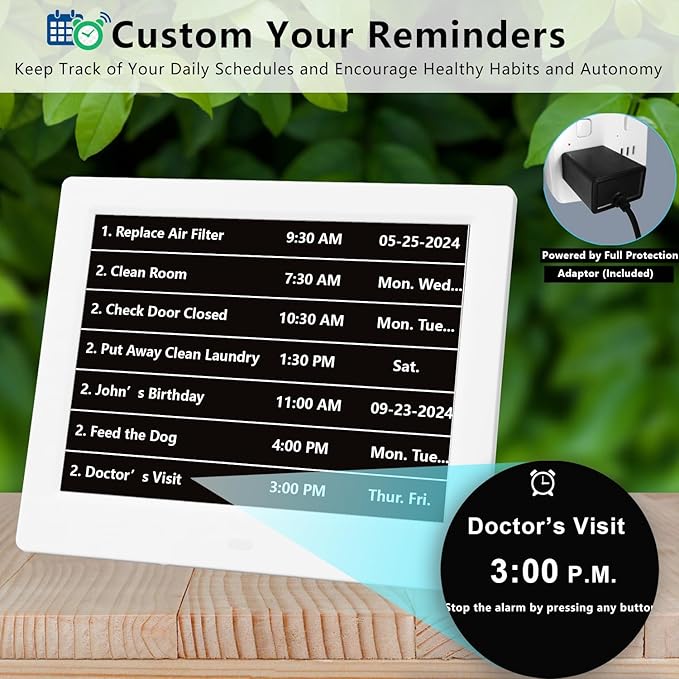Struggling with forgetfulness? Learn practical, relatable strategies for how to cope with memory loss and stay sharp as you age with real-life tips, emotional support, and memory-boosting habits.
Memory loss can affect anyone, and finding ways to cope with it is both challenging and essential. Whether you have been experiencing occasional forgetfulness or more persistent memory issues, know that you are not alone!
There are ways to manage it without panicking! Let’s walk through this together to create less confusion, more clarity, along with coping mechanisms.
Crushing Confusion: How to Cope With Memory Loss
Memory loss isn’t always dramatic. Sometimes it’s subtle. But when you’re over 60 and starting to notice forgetfulness creeping into your daily life, it can feel frustrating—or even scary. So, let’s crush that confusion and get back in control.
Memory loss can occur for several reasons, including aging, stress, lack of sleep, or nutritional deficiencies.and other health conditions. It may also be linked to neurological changes that happen gradually over time.
While experiencing memory lapses can be frustrating, understanding the causes is an important first step in addressing the challenges it brings.
Modern medicine offers several treatments and assistive technologies that support people coping with memory problems, but research lifestyle adjustments remain a cornerstone. Research indicates that a healthy lifestyle and balanced routine can help ease up some memory issues.
Why Am I Forgetting Things? Normal vs. Not-So-Normal
Let’s keep it real—aging and memory loss often go hand-in-hand.
But there’s a difference between natural forgetfulness and warning signs of something more serious like mild cognitive impairment or early-stage dementia.

Normal forgetfulness looks like:
- Forgetting names but remembering them later
- Misplacing items occasionally
- Trouble recalling a word, but it pops up eventually
What’s worth checking out?
- Frequently forgetting recent events
- Repeating questions or stories often
- Trouble following directions
Still not sure? Talk to a healthcare provider. Early awareness makes a huge difference when you’re learning how to cope with memory loss.
Common Challenges and Dealing With Memory Loss
Like with any condition, confronting memory loss includes challenges that might slow progress. By addressing these issues head-on, you can develop workarounds that lessen their impact. Several challenges commonly arise for those trying to manage memory loss.
- Disruptions with Daily Routine: Memory loss may sometimes disrupt your established routines, making daily tasks seem more daunting. This can be mitigated by using visual planners or timers and staying flexible in your planning. Over time, you might find that a well-planned schedule significantly reduces surprises and stress.
- Difficulty with Concentration: The struggle to maintain focus can often cause minor tasks to feel overwhelming and disrupt the formation of new habits. When concentration wanes, breaking bigger tasks into manageable parts and scheduling short breaks can renew your focus. Over time, these small changes may form the basis of improved focus and productivity.
- Emotional Issues: Living with memory loss can bring a mix of emotions. Acknowledging that it is okay to feel frustrated or upset is part of the process. Safe outlets, such as speaking with a trusted friend or mental health professional, provide a space where these feelings can be shared and managed effectively. Practicing relaxation techniques like deep breathing can provide relief.
- Social Isolation:The impact of memory loss on social interactions may lead to feelings of isolation. A proactive approach might include joining support groups or engaging in community activities tailored to those experiencing similar challenges. Connecting with others who understand your situation can help alleviate feelings of loneliness.
It is important to view these challenges as part of your adventure, knowing that with thoughtful approaches, many of them can become manageable over time. Regularly assessing your situation and adjusting strategies is an ongoing process that can yield positive results.
Real-Life Tips That Help You Cope With Memory Loss
When coping with memory loss, it’s wise to begin by setting up a structured framework to manage day-to-day tasks.
Small changes in your routine can lead to big results over time. Developing a system that works for you helps create a sense of order and resilience.
Many strategies are available, and some of these recommendations may work particularly well for beginners.
Whether you’re looking to involve your family or want to independently manage your routines, starting with simple, consistent practices can pave the way for improvement.
Over the years, I’ve picked up a few tricks—some from doctors, others from experience (and okay, a few from trial and error). If you’re coping with memory loss, these may help:
1. Write It Down
Get yourself a big wall calendar. I write everything down—from doctor’s appointments to “remember to water the plant.” And I use sticky notes like it’s a hobby. Create a consistent schedule that incorporates meal times, exercise, and rest.
- Use Memory Aids: Incorporate calendars, alarms, and written lists. Relying on external memory aids can serve as helpful reminders for everyday tasks.
- Engage in Brain Exercises: Activities like puzzles, reading, and memory games not only stimulate the brain but also boost mental agility.
Having a regular pattern can reduce stress and quiet the mind. Create a habit of reviewing your daily or weekly schedule with someone who understands your needs. This can be a family member, a friend, or even a professional advisor.
2. Build a Brain-Boosting Morning Routine
Start your day with something to fire up those brain cells. I like a crossword and a 10-minute walk. Bonus points if you pair it with brain health tips like sipping green tea or adding blueberries to breakfast.
3. Get Moving—Exercise
Physical activity helps circulation, which means more oxygen to your brain. I started with simple stretches and now I swear by daily walks. Movement is one of the most underrated memory support strategies out there.
4. Eat Foods for Brain Health
Load up on best foods for memory—like salmon, nuts, leafy greens. I didn’t grow up on kale, but hey, we adapt. Eating foods rich in antioxidants, omega-3 fatty acids, and vitamins supports brain health and helps maintain cognitive function.
5. Play the “Name That Person” Game
When I meet someone new, I say their name three times in conversation. I learned that trick at a support group for folks dealing with memory loss and it’s stuck with me—literally.
6. Organize Your Space
Having a designated spot for essentials (keys, glasses, meds) reduces mental clutter. It’s a game-changer for folks coping with dementia symptoms too.
Organize living spaces in a way that minimizes distractions. Use labels, color-coded reminders, and designated areas for important items as a way to streamline daily operations.
7. Talk About It – Your Support Network
Don’t bottle up the frustration. Whether it’s your spouse, friend, or a support group, talking openly about how to cope with memory loss makes it less scary.
Even if it feels challenging, staying connected with friends and family is very important. Consider joining memory care groups or community activities focused on wellness.
Advanced Techniques and Lifestyle Adjustments For Coping With Memory Loss
When you feel comfortable using basic coping strategies, stepping up your approach with more advanced techniques may provide additional benefits.
Consider these advanced approaches and lifestyle adjustments to further support a healthy memory:
Practice Mindfulness and Meditation: Regular mindfulness exercises, such as meditation, help in creating mental calmness and improving focus. Setting aside time each day for mindfulness can lead to gradual changes in brain activity that aid memory retention.
Engage in Complex Brain Activities: As you get more comfortable with the basics, try more challenging brain exercises.
Learning a new skill, tackling intricate puzzles, or engaging in creative writing can push your cognitive boundaries and stimulate new neural pathways, giving a boost to cognitive function over time.
Optimize Your Sleep Routine: Sleep plays a key role in memory processing. Experiment with different sleep schedules and environments to find what helps you achieve the most restful sleep. Deep sleep supports memory consolidation, making it easier to retain and recall information.
Consistency in these practices helps in sustaining long-term improvements. As your daily strategies become more advanced, you may notice a steady positive shift in how memory issues affect your life.
Is It Time for Professional Help?
Sometimes, despite all our best efforts and building a supportive environment, forgetfulness keeps getting worse. That’s when you may need:
- A visit to a memory clinic
- Neurological evaluation
- Access to memory care for seniors in your area
And you know what? There’s zero shame in asking for help. Coping with memory loss is hard—but no one said you have to do it alone!
Conclusion: Dealing With Memory Loss
Managing memory loss is a process that requires patience, understanding, and practical strategies. While it may seem overwhelming at times, building an all-in-one framework that includes daily routines, memory aids, and supportive social structures can lead to lasting improvements.
Over time, incorporating advanced techniques like mindfulness, challenging brain exercises, and lifestyle adjustments can further boost your cognitive resilience. Coping with memory loss is about building an environment where mistakes are met with patience.
Related Articles
- Memory Loss vs Dementia: 3 Scary Culprits
- Types of Memory Loss: 5 Powerful Ways to Stay Sharp
- What Causes Memory Loss As You Age? Avoid 9 Triggers
Frequently Asked Questions for How to Cope With Memory Loss
Below are some of the questions that many people dealing with memory loss ask regularly:
What is a practical first step for managing memory loss?
Begin by establishing a stable daily routine, making use of calendars, reminders, and memory aids. These simple tools help create order and reduce daily stress.
How can I improve my focus when memory loss makes tasks challenging?
Breaking tasks into smaller, manageable segments and incorporating regular breaks can help boost concentration. Mindfulness and scheduled relaxation may also improve focus.
Are there lifestyle changes that can significantly benefit memory retention?
Yes, integrating a healthy diet, regular physical exercise, and adequate sleep into your routine can really support brain health, making these lifestyle changes worthwhile to consider.
What role does professional support play in managing memory loss?
Consulting with healthcare professionals can provide tailored advice and treatment options based on your condition. They can help develop a plan that supports both cognitive and emotional health.




